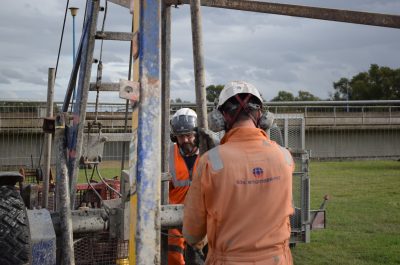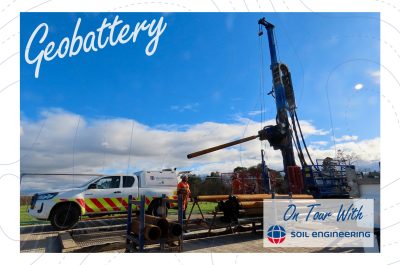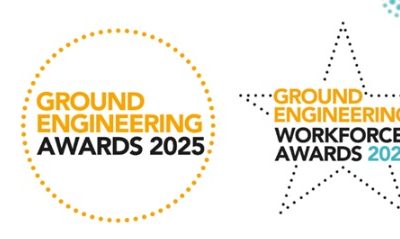INWED 2021
Soil Engineering is proud to be supporting International Women in Engineering Day 2021 (INWED 2021), putting a focus on women succeeding in a traditionally male-dominated industry. It provides an occasion to reflect how far we have come with gender diversity as a society, celebrating the contribution women make in construction, and raising awareness of the opportunities available for women of all ages through the industry.
INWED 2021 once again highlights that female careers have traditionally been poorly represented in the Construction sector. It is therefore not surprising that women make up just 12% of the workforce in construction, mostly in back-of-house office positions. However, the position is changing, and at Soil Engineering we sit above industry average in terms of female employment (22% of our staff), with women occupying roles in every sector of the business. At Management & Technical level (roles including Project Management, Technical Management & Engineer) we boast a 31% female cohort, while currently our Senior Management Team is 14% female. Whilst not as impressive as our mid-tier statistics, this includes the Heads of Ground Investigation, Grouting, and Estimating, all of whom were internal appointments.
We aim to employ and reward individuals based on capability and results, and value the diversity of our workforce. These statistics are the result of numerous strategies SEGL has put in place to develop a more welcoming and inclusive workplace. But beyond supporting INWED 2021, what are we doing to continue improving diversity in our industry?
Constructing a diverse workplace
• We believe women are a highly significant part of construction throughout the year, not just on certain days. Our staff are provided with comprehensive skills training, and career development opportunities regardless of gender.
• We provide access to person-specific training resources through the Supply Chain Sustainability School and our internal training department, and have recently signed the People Matter Charter, reflecting our commitment to overall development and inclusivity.
• Soil Engineering takes respect and equality very seriously. We proactively engage with our staff, providing training and support on EDI issues.
• We ensure female employees have properly fitting personal protective equipment, designed for them, and properly sized.
• As an employer, we take part in careers fairs at Leeds, Durham & Plymouth in which we promote an inclusive message to all potential employees. We encourage female candidates to enter the field by education, and promoting the opportunities available to them. We have, in recent years, also offered work experience and placements, a process which seen several women benefit from the process and go on to become employed in the construction industry.
• We recognise that workplace diversity is not only the morally correct thing to do, it also comes with its advantages from a business standpoint. It introduces a wider range of skills, invites new perspectives, and generates better, well-rounded discussions.
Case Study – A Career Progression
Our Estimating Manager, Cheryl Baxter, recently became the company’s first Chartered Manager. We spoke to her about her career journey from Graduate, to Technical Lead, and then through an Apprenticeship.
How did you get into the Construction industry?
I studied Geology at Edinburgh University, then completed a Masters in Mining Geology at Camborne School of Mines. I heard about the position at what was then Norwest Holst through a friend and started as an Assistant Engineer. My first major project involved data handling, in Glasgow on the M74 Completion GI. Progressing to Engineer, and then Senior Engineer I worked mainly on sites across the North of England. I took on the Technical Manager role at the Airdrie Bathgate Rail GI, before moving into the Estimating department in 2012. I stepped up to a Senior Estimator role in 2016, formally becoming Estimating Manager in late 2020.
In the meantime the company supported me in starting a Management Apprenticeship on 2018, and I became chartered two and a half years later. I’m obviously addicted to personal development, as I then completed both Mental Health First Aid (MHFA) and MHFA Trainer courses. That means I can not only provide Mental Health support to my team, but also upskill other people to do the same.
What has been your favourite Engineering project?
One that stands out to me from a few years ago was Airdrie-Bathgate where I was the Technical Manager. It was both rewarding but challenging and taught me a lot. Leading a technical team of 10 through a 12 month project, the largest the company had ever undertaken at the time, was a massive challenge. But seeing the completed railway a few years later was a big reward.
How do you find being a woman in construction?
In my opinion, being a woman in the construction industry hasn’t made a difference. I don’t believe that the way people behave and perceive you changes just because you’re a girl, even on site – I was just considered the same as everyone else. From my experience everyone is treated fairly, as long as you’re a nice person and can do the job nothing else matters. The GI industry might be different to construction at large, but its more of a family.
Have you had any obstacles?
The biggest obstacle was probably getting my chartership. I had to juggle work and family life to find time to do my assignments and go to the courses, but I’m one of those people that where once I start something I have to finish it. So it was difficult at times but definitely worth it. It definitely wasn’t a gender obstacle though, more one of fitting the course into an already hectic work-life schedule.
What is your advice to women wanting to get into construction?
Go for it! To me it shouldn’t make a difference what gender you are – if you can do a job you can do a job. Just accept that you have different qualities and strengths to men, and play to these. There’s nothing that you can’t do, and balanced perspective make for stronger teams.



